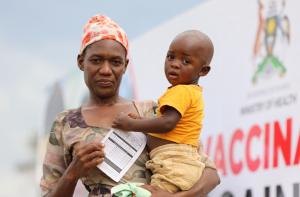Lusaka – Across Africa, fragile health systems are often the first to falter when a crisis strikes, with profound impacts on lives, livelihoods, and health, and often causing long-term socioeconomic disruption.
Renewing efforts to protect communities from the growing threat of health emergencies, health ministers meeting for the 75th session of the World Health Organization (WHO) Regional Committee for Africa in Lusaka, Zambia, agreed to take urgent action to strengthen national capacities to anticipate, respond to, and recover from threats to public health.
The development of a strong and equitably distributed health workforce was at the heart of the discussions. Countries committed to increasing recruitment, ensuring equitable deployment between urban and rural areas, and investing in continuing education to prepare health professionals for routine care and emergency response. Educational institutions will be more involved in aligning training programs with national strategies and evolving health security needs.
In 2025, WHO and its partners responded to more than 21 public health emergencies on the continent, ranging from outbreaks of smallpox, cholera, measles, and dengue fever to humanitarian crises caused by conflict and displacement. Each response required the rapid mobilization of experts, supplies, and funding, often in several countries at once, underscoring the relentless emergency work in the region.
“We can no longer afford to be caught off guard,” said Dr. Mohamed Janabi, WHO Regional Director for Africa. “Our region has made significant progress in recent years, but every emergency that disrupts health systems and compromises the health and well-being of populations is an important lesson to be learned. We must put in place resilient systems to respond to health emergencies while effectively delivering routine services.” ”
Ministers also emphasized the need to integrate resilience into the core of health service delivery, particularly in fragile and conflict-affected areas. They stressed the importance of empowering leaders, improving coordination mechanisms, and ensuring that infrastructure and services can withstand future shocks. Past experiences will be used to guide system-wide improvements and strengthen preparedness at all levels.
Ministers also plan to closely involve communities in preparedness planning, co-develop early warning systems with frontline actors, and strengthen local organizations by providing them with the tools and training they need to respond effectively in emergencies. This shift toward localized preparedness is seen as essential to building trust, speeding up response times, and ensuring that no community is left behind.
Ministers recognized that these commitments must be supported by sustainable resources. To this end, they agreed to mobilize domestic financing so that preparedness and response efforts do not depend solely on external emergency appeals. Resources will be allocated where they are most needed, on the front lines, to meet immediate needs and build long-term capacity.







OTHER ARTICLES
Editorial — Prevent, inform, and act for women’s health in Africa
Kenya : Government Prioritises Maternal Health and Strengthens Support for Community Health Promoters
Strengthening pandemic prevention, preparedness, and response capacities in Senegal using the “One Health” approach